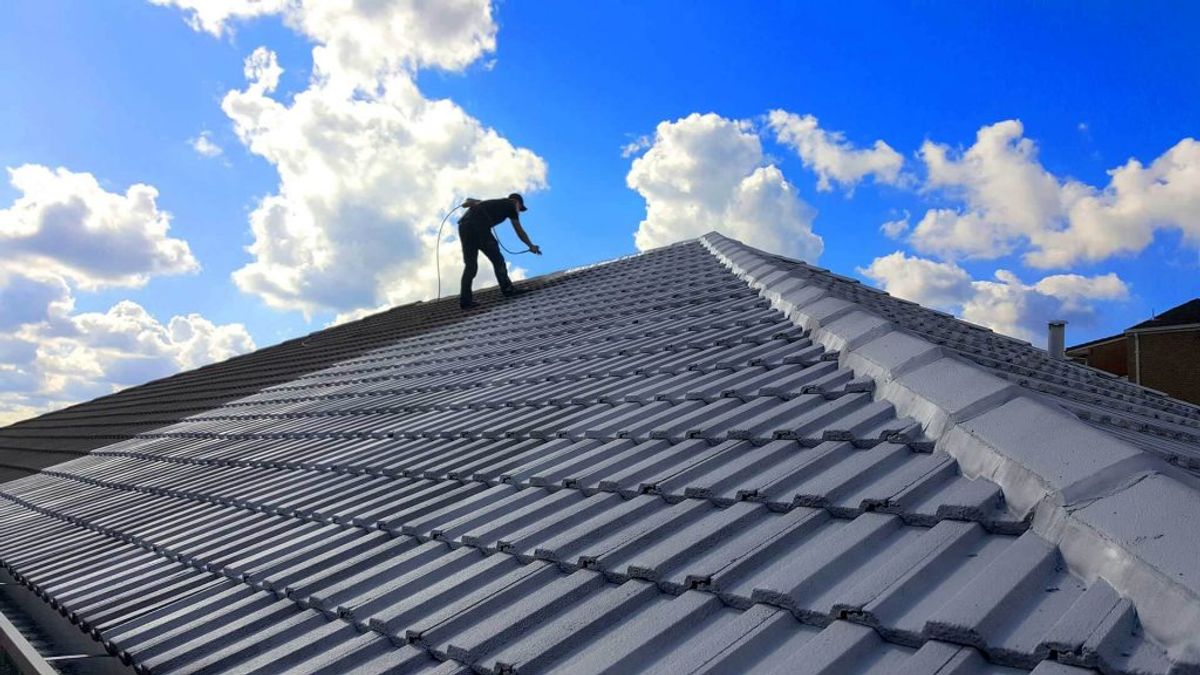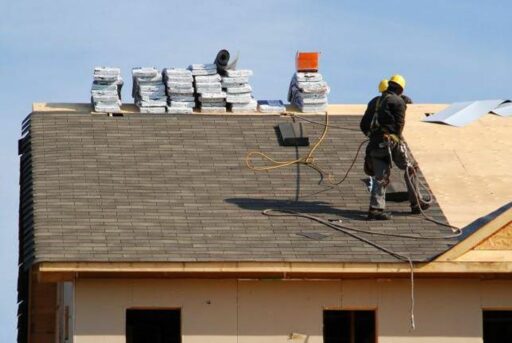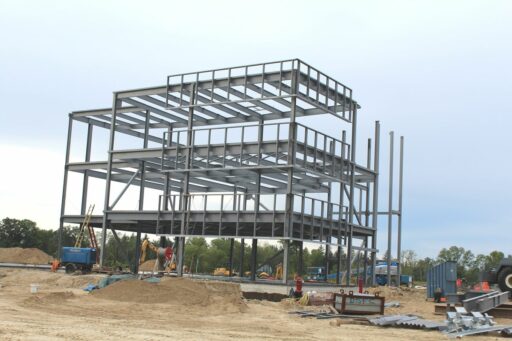Selecting the right roofing contractor for your project is a significant decision that can impact the quality and longevity of your roof. It’s crucial to conduct thorough due diligence by asking pertinent questions that will provide you with insights into the contractor’s reliability, expertise, and business practices. Here are 10 essential questions to ask a roofing contractor before deciding to hire them, each designed to ensure that you’re making an informed and confident choice for your roofing needs.
Key Takeaways
- Verify the contractor’s local presence to ensure they are familiar with regional weather conditions and building codes.
- Confirm that the contractor carries comprehensive insurance to protect against accidents and damage.
- Read customer reviews and ask for references to gauge past performance and customer satisfaction.
- Check for industry accreditations and licensing to affirm the contractor’s professional qualifications.
- Discuss contingency plans for adverse weather, waste disposal, and unexpected issues to understand how the contractor manages unforeseen challenges.
1. Local Presence

Ensuring your roofing contractor has a strong local presence is crucial for several reasons. Local contractors are well-versed with the specific building codes and weather patterns that affect roofs in your area. Moreover, their proximity means they can quickly address any post-installation issues that may arise.
To verify a contractor’s local presence, consider the following steps:
- Conduct online research to check their physical address and reviews.
- Seek personal recommendations from friends or family who have had roofing work done.
- Request proof of local projects they’ve completed, including references.
Remember, a contractor’s local presence is not just about having a local phone number or address; it’s about their reputation and history within the community. It’s advisable to ensure they have established a positive track record over time with local customers who can vouch for their reliability and quality of work.
When it comes to roofing, the peace of mind that comes with hiring a local expert is invaluable. They’re not just contractors; they’re part of your community, invested in maintaining its safety and aesthetic appeal.
2. Insurance Verification

Verifying a roofing contractor’s insurance is a critical step in ensuring your protection throughout the roofing project. Always ask for proof of insurance and make sure it is up to date. A reputable contractor will not hesitate to provide you with their insurance documents. This is essential not only for liability purposes but also to safeguard your property in case of accidents or damages.
It’s important to understand that insurance verification is not just a formality; it’s a safeguard for homeowners against potential risks and financial losses.
When discussing insurance, inquire if the contractor is familiar with using Xactimate, the software commonly used by insurance companies to estimate repair costs. This knowledge can be beneficial, especially if you are dealing with an insurance claim for your roof.
Remember to compare the insurance coverage of different contractors as part of your selection process. Here are some key points to consider:
- The type of insurance coverage they hold (e.g., general liability, workers’ compensation)
- The insurance coverage limits
- Whether the insurance is specifically for roofing work
- The validity period of the insurance policy
3. Customer Reviews

When considering a roofing contractor, customer reviews are a crucial factor in assessing their reliability and quality of work. It’s important to go beyond just glancing at the star ratings and read the comments to understand the experiences of past clients. Look for patterns in feedback, as they can be indicative of consistent strengths or weaknesses in the contractor’s service.
- Online review platforms: Check sites like Yelp, Angie’s List, or HomeAdvisor.
- Social media interactions: Review the contractor’s responses to customer feedback on platforms like Facebook or Twitter.
- Awards and recognition: Note any accolades from local business organizations.
Remember to verify the authenticity of the reviews by reaching out to past customers if possible. This can provide you with firsthand accounts that are more reliable than anonymous online reviews.
By gathering information from various sources, you can form a more comprehensive view of the contractor’s reputation. This due diligence can help ensure that you invest in quality materials and skilled labor for long-term savings and satisfaction.
4. Industry Accreditation

When selecting a roofing contractor, industry accreditation is a crucial factor to consider. These accreditations are not just fancy stickers; they demonstrate that the contractor has undergone the proper training and adheres to best practices. Manufacturers like GAF, Owens Corning, or Tamko have stringent criteria for accreditation, ensuring that their products are installed correctly and that the contractor is up-to-date with the latest industry standards.
Accredited contractors often have access to superior materials and warranties, which they can extend to their clients. This is a significant advantage, as it guarantees that you receive a high-quality job with top-notch materials.
If you have a preferred manufacturer, it’s essential to verify that your roofing contractor is an accredited installer with that brand. Don’t hesitate to ask the contractor to explain their accreditations; a reputable professional will be transparent and provide you with all the necessary information. Additionally, checking the contractor’s standing with the Better Business Bureau (BBB) can offer further assurance of their credibility and quality of service.
5. Licensing Confirmation

Confirming the licensing of your roofing contractor is a critical step in the hiring process. Roofing contractors in New Canaan must hold specific licenses, collaborate with professionals, and maintain a reputation for excellence to ensure trust and quality in roofing services. It’s not just about having a piece of paper; it’s about ensuring that the contractor is legally authorized to perform roofing work in your area and adheres to the industry’s safety and quality standards.
When discussing licensing with potential contractors, consider the following points:
- Ask for the license number and verify it with the local licensing authority.
- Ensure the license is current and covers the type of roofing work you need.
- Inquire about any additional certifications that demonstrate a commitment to industry standards.
It’s essential to navigate the licensing loopholes. In some states, roofing licenses are not mandatory, so look for contractors with certifications from reputable bodies that require ongoing training.
Remember, a licensed contractor is more likely to be knowledgeable, reliable, and equipped to handle your roofing project professionally. Don’t hesitate to ask for proof of licensing and to verify it independently.
6. Customer References

When considering a roofing contractor, asking for customer references is a crucial step. A trustworthy contractor will have no hesitation in providing you with a list of previous clients. Here’s what you should do:
- Contact the provided references to inquire about their experience with the contractor.
- Discuss the contractor’s reliability, communication skills, and quality of work.
- Consider the feedback from these references as a strong indicator of what to expect for your project.
It’s not just about verifying past work; it’s about understanding the potential for your future satisfaction.
Remember, a contractor’s willingness to share references speaks volumes about their confidence in the quality of their work and their transparency with potential clients.
7. Weather Contingency Plan

When it comes to roofing, the weather plays a pivotal role in both the timing and quality of the work. Ask your contractor about their specific plan for inclement weather and how they intend to protect your property should the skies turn gray. A reputable contractor will have a clear strategy in place to deal with unexpected weather conditions, ensuring that your project stays on track and your home remains safe.
It’s crucial to understand the measures that will be taken to secure the roofing materials and the site itself. This includes covering exposed areas, securing loose materials, and ensuring that there’s a plan for any standing water or leaks that might occur during a storm.
Additionally, inquire about the timeline adjustments that may be necessary due to weather delays. A good contractor should be able to provide you with a contingency schedule, outlining potential delays and how they will be communicated to you. This transparency is key to maintaining trust and ensuring that the project is completed to your satisfaction.
8. Project Supervision

Understanding who will supervise your roofing project is crucial. This individual will be your main point of contact, responsible for keeping you informed about the project’s progress and addressing any concerns you may have. It’s essential to establish clear lines of communication from the start.
Ensuring that there is a dedicated supervisor for your project can greatly enhance the efficiency and quality of the work performed.
Here are some questions you might consider asking your potential contractor about project supervision:
- Who will be my main contact during the project?
- How often can I expect updates on the project’s progress?
- What is the process for handling any unforeseen issues that may arise?
Choosing a contractor with diverse expertise can simplify project management, as they are more likely to have the necessary skills to handle various aspects of the job. It’s important that your contractor understands your remodeling desires to deliver quality work that reflects the uniqueness of your home.
9. Waste Disposal

When it comes to roofing, the cleanup process is just as important as the installation. Ask your contractor about their waste disposal plan to ensure your property remains clean and safe throughout the project. It’s essential to know whether the disposal of old materials and construction debris is included in the service or if there will be additional charges.
Proper waste management is crucial not only for aesthetic reasons but also for environmental compliance.
Here are some questions you might consider asking:
- How will waste materials be collected during the project?
- What is the process for disposing of these materials?
- Are disposal fees included in the initial estimate?
Understanding the contractor’s approach to waste disposal can give you insight into their overall project management and commitment to sustainability.
10. Handling Additional Issues

During any roofing project, there’s always a chance that additional issues may be uncovered once the work begins. It’s essential to understand how your contractor will address these unexpected challenges. Will they pause the project to discuss options, or do they have a standard procedure for common issues?
- Discuss the process for identifying and reporting new issues.
- Inquire about the potential impact on the timeline and budget.
- Ensure there’s a clear communication plan for any changes that arise.
It’s important to have a transparent and agreed-upon approach for handling surprises to avoid delays and unexpected costs.
Finally, ask if these contingencies are included in the initial quote or if they will result in additional charges. This will help you budget accordingly and prevent financial surprises once the project is underway.
Conclusion
Choosing the right roofing contractor is pivotal to the success of your roofing project. By asking these essential questions, you can gauge the contractor’s credibility, workmanship, and reliability. Remember to verify their local presence, insurance coverage, and licensing. Inspect past work, read reviews, and don’t hesitate to speak with previous customers. Consider how they handle unexpected issues, waste disposal, and weather contingencies. Finally, ensure clear communication about warranties and project supervision. Taking these steps will help you make an informed decision and secure a quality roofing installation for your home.
Frequently Asked Questions
How can I verify that the roofing contractor is truly local?
Ask the contractor for their physical address and check if they have an established business presence in your area. You can also request to see local references or completed projects.
What type of insurance should my roofing contractor have?
Ensure that your roofing contractor carries general liability insurance and workers’ compensation insurance. Request to see their certificates and verify their validity.
How can I find and assess customer reviews of the roofing contractor?
Look for reviews on reputable trade websites, Google, and social media platforms. Pay attention to how the contractor responds to both positive and negative feedback.
Why is industry accreditation important for a roofing contractor?
Accreditation signifies that the contractor meets certain industry standards and is committed to professionalism. It can be a good indicator of their expertise and reliability.
How do I confirm that the roofing contractor is properly licensed?
Ask for the contractor’s license number and verify it with your local licensing board or government agency responsible for regulating roofing contractors.
What should I do if the roofing project uncovers additional issues?
Discuss with the contractor how unforeseen problems are handled, including the process for assessing the issues, potential additional costs, and adjustments to timelines.





